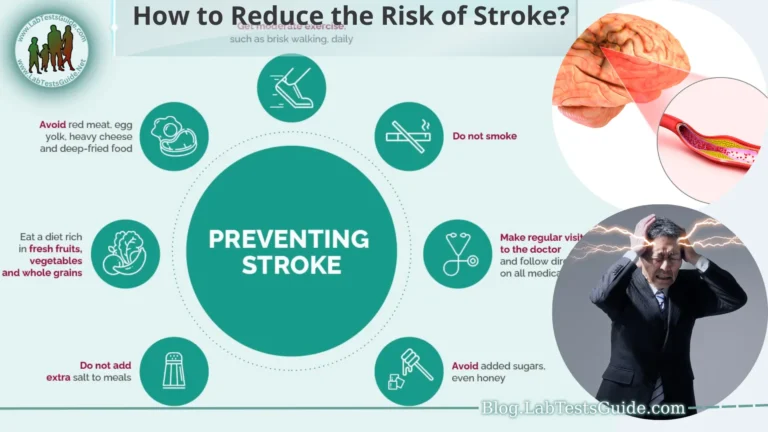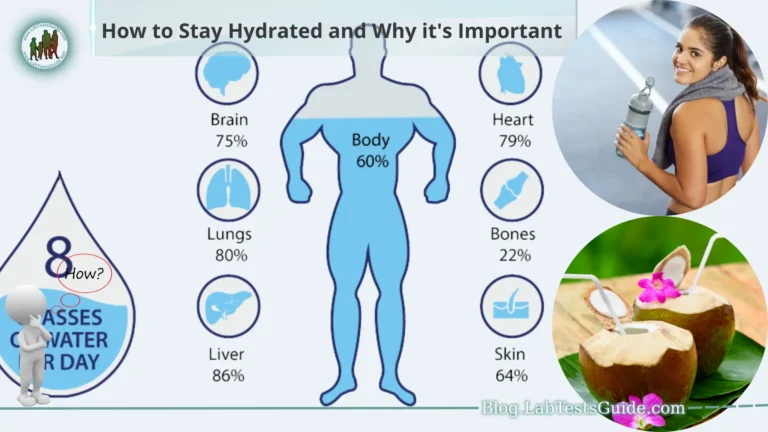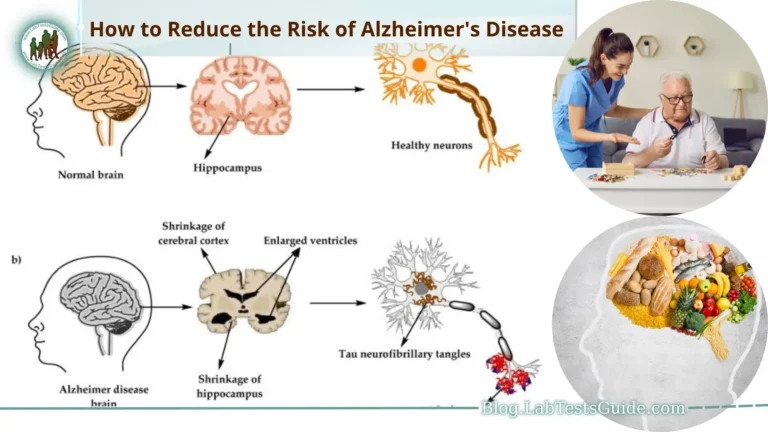As we journey through midlife, our memories play an increasingly critical role in shaping our experiences and interactions with the world. However, it’s no secret that memory tends to undergo changes as we age, and many of us may find ourselves grappling with occasional forgetfulness or difficulties in recalling important information. But fear not, for this guide, “Memory in Your Prime: How to Boost Recall During Midlife,” is designed to be your comprehensive companion in understanding and improving memory during this crucial stage of life.

In this book, we will delve into the fascinating world of memory and explore how the brain processes, stores, and retrieves information. We’ll unravel the mysteries behind the typical memory changes that occur during midlife and examine the factors that influence memory, including biological, lifestyle, and psychological aspects. Armed with this knowledge, we will embark on a journey of self-improvement, as we present a plethora of practical strategies and techniques to enhance memory performance. From mental exercises and brain-training techniques to the impact of diet, sleep, and stress on memory, you’ll discover a range of effective tools to keep your recall sharp and reliable. Moreover, we’ll explore the intersection of technology and memory enhancement, discussing the latest advancements in memory apps, wearable devices, and brain-training games.
What Is Memory?
- Memory is the mental ability to encode, store, and retrieve information from past experiences and learning.
- It is a fundamental cognitive function that allows us to retain knowledge, experiences, and skills over time.
- Memory can be categorized into three main types: sensory memory (brief retention of sensory information), short-term memory (temporary storage of information for immediate use), and long-term memory (relatively permanent storage of information).
- Encoding is the process of converting sensory input into a form that can be stored in memory, such as turning an experience into a mental representation.
- Storage involves maintaining the encoded information over time. The capacity and duration of memory storage can vary for different types of information.
- Retrieval is the process of accessing stored information when needed. Successful retrieval depends on various factors, including the strength of the memory trace and the cues available.
- Memory is not a perfect reproduction of past events but rather a reconstructive process influenced by personal biases and subsequent experiences.
- There are multiple theories of memory, including the multi-store model, which posits distinct memory stores, and the levels of processing model, which emphasizes the depth of processing during encoding.
- Memory plays a crucial role in various cognitive functions, including learning, problem-solving, decision-making, and language comprehension.
- Memory can be influenced by various factors, such as age, health conditions, emotional states, and the level of attention during encoding.
- Forgetting is a normal part of memory, and there are different types of forgetting, such as decay (fading of memory over time) and interference (disruption of memory by other information).
- Memory disorders, like amnesia and Alzheimer’s disease, can significantly impact a person’s ability to remember and function in daily life.
- Strategies like rehearsal, mnemonic devices, and spaced repetition can enhance memory retention and recall.
- Memory can be affected by external aids (e.g., notes, calendars) and internal techniques (e.g., visualization, association) to improve recall.
- Overall, memory is a complex and dynamic cognitive process that continues to be a subject of extensive research and exploration in neuroscience and psychology.
How to Improve Memory Retention:
- Pay Attention: Focus on the information you want to remember. Minimize distractions and engage actively with the material. Concentrate fully on the task at hand, as strong initial encoding leads to better retention.
- Use Mnemonic Devices: Mnemonics are memory aids that can help you remember information through associations or patterns. Techniques like acronyms, acrostics, and visualization can make it easier to recall complex information.
- Practice Spaced Repetition: Instead of cramming all at once, space out your study or review sessions over time. This spaced repetition helps reinforce memory and increases retention in the long term.
- Chunking: Group related pieces of information together to form meaningful chunks. This method helps increase the capacity of short-term memory and makes it easier to remember larger sets of data.
- Visualization: Create vivid mental images related to the information you want to remember. Associating the data with a visual representation can enhance memory retention.
- Teach Someone Else: Explaining the material to someone else requires a deeper understanding and strengthens memory retention. Teaching or discussing the information with others can reinforce your own learning.
- Use the Method of Loci: This ancient memory technique involves associating items you want to remember with specific locations in a familiar place (e.g., your house). Mentally walk through the location to recall the information.
- Employ Retrieval Practice: Regularly quiz yourself on the material to actively recall the information. This process of retrieving information from memory helps reinforce memory retention.
- Get Sufficient Sleep: Sleep is crucial for memory consolidation. Ensure you get enough restful sleep to solidify and organize the information you have learned during the day.
- Stay Organized: Keep your study materials and notes well-organized. Having a structured approach to learning can aid memory retention.
- Connect New Information to Prior Knowledge: Relate new information to what you already know. Associating new concepts with familiar ones strengthens memory links and facilitates retention.
Memory and Brain Health:
- Brain Structure and Memory: Different regions of the brain play specific roles in memory. The hippocampus, located in the temporal lobe, is crucial for forming new memories and spatial navigation. The prefrontal cortex is involved in working memory, decision-making, and executive functions. Damage to these brain regions due to injury, disease, or aging can affect memory abilities.
- Neurotransmitters and Memory: Memory formation and retrieval depend on the transmission of signals between neurons through chemicals called neurotransmitters. Acetylcholine, for example, plays a vital role in memory and attention. Imbalances in neurotransmitter levels can lead to memory issues, as seen in conditions like Alzheimer’s disease.
- Neural Plasticity: The brain’s ability to adapt and reorganize itself in response to learning and experiences is known as neural plasticity. Neural connections strengthen with use, contributing to memory retention. Regular mental stimulation and learning activities promote neural plasticity, supporting memory health.
- Age-Related Changes: As people age, the brain undergoes natural changes that can impact memory. The volume of certain brain regions may decrease, and communication between neurons may slow down. These changes can lead to mild memory decline, known as age-related cognitive decline.
- Brain Health and Lifestyle: Lifestyle factors significantly influence brain health and memory function. Engaging in regular physical exercise, maintaining a balanced diet, getting enough sleep, and managing stress contribute to a healthy brain and support memory retention.
- Cognitive Reserve: Cognitive reserve refers to the brain’s ability to maintain optimal functioning despite age-related changes or brain damage. Activities that challenge the brain, such as learning new skills or engaging in intellectually stimulating tasks, can build cognitive reserve and potentially delay memory decline.
- Brain Diseases and Memory: Certain brain diseases and disorders can severely affect memory. Alzheimer’s disease, dementia, and other neurodegenerative conditions lead to progressive memory loss and cognitive decline.
- Mental Health and Memory: Psychological factors, such as depression, anxiety, and chronic stress, can impact memory function. Maintaining good mental health and seeking treatment for psychological issues can positively influence memory retention.
- Brain Training and Memory Improvement: Various memory exercises and brain training activities are designed to enhance cognitive function and memory. While some brain-training games may have limited transfer effects, engaging in diverse mentally stimulating activities can promote brain health.
- The Role of Social Engagement: Social interaction and engagement with others are essential for brain health. Staying socially connected may help preserve memory and cognitive abilities as people age.
Factors Affecting Memory in Midlife:
- Age-Related Changes: As individuals enter midlife, they may experience some natural changes in memory. The brain’s processing speed and efficiency may slow down, making it slightly more challenging to retrieve information quickly. However, these age-related changes typically do not significantly impair overall memory function.
- Hormonal Changes: For women experiencing menopause during midlife, hormonal fluctuations can impact memory and cognitive abilities. Estrogen plays a role in brain function, and changes in its levels can affect memory and other cognitive processes.
- Stress and Emotional Well-being: Chronic stress, anxiety, and depression can negatively affect memory and cognitive function. High levels of stress hormones can impair memory retrieval and interfere with attention and focus.
- Sleep Quality: As people age, sleep patterns may change, and getting restful sleep becomes crucial for memory consolidation. Poor sleep quality or sleep disturbances can lead to memory difficulties.
- Health Conditions: Certain health conditions, such as cardiovascular disease, diabetes, and hypertension, can impact brain health and memory. Managing these conditions through lifestyle changes and medical treatment is essential for memory preservation.
- Medications: Some medications prescribed during midlife may have side effects that affect memory and cognitive function. It is essential to discuss any concerns about memory changes with a healthcare provider to assess medication effects.
- Lifestyle Factors: Engaging in a healthy lifestyle can positively influence memory in midlife. Regular physical exercise, a balanced diet, and mental stimulation through learning and cognitive activities support brain health.
- Cognitive Engagement: Continually challenging the brain through mentally stimulating activities can help maintain memory and cognitive function. Activities like reading, puzzles, learning new skills, and staying socially engaged are beneficial.
- Menopause and Cognitive Fog: Some women report experiencing cognitive fog or memory lapses during perimenopause or menopause. The precise cause is not entirely understood, but it may be related to hormonal fluctuations and sleep disturbances.
- Cognitive Reserve: The concept of cognitive reserve suggests that individuals with higher levels of education, intellectually challenging careers, or greater cognitive engagement throughout life may have a buffer against age-related cognitive decline, including memory.
- Genetics: Family history and genetic factors can influence memory performance. Some individuals may have a higher genetic predisposition to conditions like Alzheimer’s disease, which can impact memory in midlife.
Strategies for Enhancing Memory:
Mental Exercises and Brain Training:
- Engage in puzzles, crosswords, and brain-training games to challenge your cognitive abilities and memory.
- Play memory games like “Simon” or “Memory Match” to strengthen recall and attention.
Physical Exercise and Its Influence on Memory:
- Regular aerobic exercise has been linked to improved memory and cognitive function.
- Physical activity increases blood flow to the brain, promoting neuroplasticity and memory retention.
Diet and Nutrition for Optimal Brain Function:
- Consume a balanced diet rich in fruits, vegetables, whole grains, and healthy fats like omega-3 fatty acids (found in fish and nuts).
- Antioxidant-rich foods, such as berries and leafy greens, may help protect the brain from oxidative stress.
Sleep and its Role in Memory Consolidation:
- Prioritize quality sleep to allow the brain to consolidate memories and optimize memory retention.
- Create a consistent sleep schedule and establish a relaxing bedtime routine.
Stress Management and Memory Improvement:
- Practice stress-reduction techniques like mindfulness, meditation, or yoga to improve memory function.
- Chronic stress can impair memory and cognitive performance, so finding healthy coping mechanisms is essential.
Mnemonic Devices and Memory Techniques:
- Use acronyms, acrostics, or visualization to associate new information with familiar cues, aiding memory recall.
- Chunking information into smaller, manageable pieces can make it easier to remember.
Visualization and Association:
- Create vivid mental images related to the material you want to remember.
- Associate new information with existing knowledge or personal experiences for better memory retention.
Mindfulness and Memory Retention:
- Stay present and focused on the task at hand to enhance memory encoding and recall.
- Practice mindfulness techniques to improve attention and concentration.
Memory Apps and Digital Tools:
- Use memory apps and digital tools designed to stimulate memory and cognitive function.
- These tools may offer activities, games, and reminders to enhance memory performance.
Lifelong Learning and its Impact on Memory:
- Continue to learn new skills and acquire knowledge to stimulate the brain and support memory retention.
- Taking up hobbies, attending classes, or pursuing interests can be beneficial for memory improvement.
Techniques for Boosting Recall:
Mnemonic Devices and Memory Techniques:
- Use mnemonic devices like acronyms, acrostics, or rhymes to create memorable associations with the information you want to recall.
- The method of loci (memory palace) involves associating information with specific locations in a familiar environment, making it easier to remember.
Visualization and Association:
- Create vivid mental images related to the information you want to remember.
- Associate the material with familiar objects, people, or places to aid in recall.
Chunking and Categorization:
- Group related pieces of information into meaningful chunks.
- Categorize information based on themes or similarities to make it easier to recall larger sets of data.
Mindful Learning and Repetition:
- Pay close attention when learning new information to enhance encoding and memory consolidation.
- Repeat the material multiple times through spaced repetition to strengthen memory recall.
Practice Retrieval:
- Actively quiz yourself on the material to retrieve the information from memory.
- Practice retrieval regularly to reinforce memory and improve long-term recall.
Use Multi-Sensory Learning:
- Engage multiple senses while learning, such as reading out loud, writing notes, or drawing diagrams.
- Multi-sensory experiences can improve memory retention and recall.
Contextual Cues:
- Link the information to specific contextual cues or situations you encountered during the learning process.
- Recall can be triggered by remembering the context in which the information was initially learned.
Verbalize and Teach:
- Explain the information to someone else or pretend you are teaching the material.
- Teaching or verbalizing the content helps reinforce memory and understanding.
Utilize Flashcards:
- Create flashcards with questions or prompts on one side and answers on the other.
- Regularly review the flashcards to improve memory recall.
Mind Mapping:
- Create visual representations of the information using mind maps or concept maps.
- Mind maps can help organize and connect related concepts, aiding in memory retrieval.
Technology and Memory Enhancement:
Memory Apps and Digital Tools:
- Memory apps are designed to stimulate memory and cognitive function through interactive games, quizzes, and exercises.
- These apps often target specific memory aspects, such as working memory or long-term memory, to improve overall recall.
Wearable Devices for Cognitive Enhancement:
- Some wearable devices, like smartwatches or fitness trackers, offer features that can support memory improvement.
- These devices can provide reminders, alarms, or calendar functions to help users stay organized and remember important tasks.
Brain Training Games and Cognitive Exercises:
- Online brain training platforms offer a variety of games and exercises designed to challenge cognitive abilities, including memory.
- These games aim to promote neuroplasticity and memory retention through regular practice.
Virtual Reality (VR) Training:
- Virtual reality technology allows users to engage in simulated environments and scenarios that challenge memory and cognitive skills.
- VR training can be used in memory rehabilitation for individuals with memory impairments.
Digital Note-Taking and Organization:
- Note-taking apps and digital organization tools can help individuals keep track of information, tasks, and appointments more efficiently.
- Digital calendars and reminders can aid in memory recall for important events.
Brain-Computer Interfaces (BCIs):
- BCIs hold promise for memory enhancement by establishing direct communication between the brain and external devices.
- Research is ongoing to explore the potential of BCIs for memory restoration and augmentation.
Personalized Learning Platforms:
Online learning platforms can adapt to individual learning styles and preferences, optimizing memory encoding and retention. Personalized learning experiences can enhance memory recall by catering to specific needs.
- Assistive Technologies for Memory Impairment: For individuals with memory impairments, assistive technologies like smartwatches with reminder functions or smartphone apps can help compensate for memory deficits.
Data Tracking and Quantified Self:
- Wearable devices and mobile apps can track various aspects of daily life, such as sleep patterns, physical activity, and diet, which can impact memory and cognitive function.
- Analyzing these data can provide insights into lifestyle factors that may affect memory and guide memory enhancement efforts.
Nurturing Healthy Brain Aging:
Physical Exercise:
- Regular aerobic exercise, such as walking, swimming, or cycling, supports brain health by increasing blood flow and promoting neuroplasticity.
- Aim for at least 150 minutes of moderate-intensity exercise per week.
Balanced Diet:
- Consume a diet rich in fruits, vegetables, whole grains, lean proteins, and healthy fats.
- Omega-3 fatty acids found in fish, nuts, and seeds are particularly beneficial for brain health.
Cognitive Stimulation:
- Engage in mentally stimulating activities, such as puzzles, reading, learning new skills, or taking up hobbies that challenge the brain.
- Lifelong learning can build cognitive reserve and support healthy brain aging.
Social Engagement:
Stay socially connected with friends, family, and community activities. Social engagement can help prevent feelings of isolation and positively impact cognitive function.
- Quality Sleep: Prioritize getting sufficient and restful sleep to support memory consolidation and overall brain health. Aim for 7-9 hours of sleep per night.
Stress Management:
- Practice stress-reduction techniques like meditation, yoga, or deep breathing exercises to manage chronic stress.
- High levels of stress can negatively impact brain health and cognitive function.
Avoid Smoking and Limit Alcohol:
- Smoking and excessive alcohol consumption can damage brain cells and contribute to cognitive decline.
- Avoiding smoking and limiting alcohol intake is beneficial for brain health.
Manage Chronic Conditions:
- Control and manage chronic conditions like hypertension, diabetes, and high cholesterol, as they can impact brain health.
- Regular medical check-ups and adherence to treatment plans are essential.
Brain-Healthy Supplements:
- Some supplements, such as vitamin B12, vitamin D, and ginkgo biloba, may support brain health in individuals with deficiencies or specific needs.
- Consult a healthcare professional before starting any supplements.
Stay Mentally Active:
- Engage in intellectually challenging tasks and continue to learn throughout life.
- Reading, taking classes, or doing brain-training exercises can support cognitive function.
Overcoming Memory Challenges:
Identifying Memory Issues and Seeking Help:
- Be aware of any persistent memory difficulties or changes in memory function.
- If memory challenges are impacting daily life or causing concern, seek guidance from a healthcare professional for proper evaluation and diagnosis.
Memory Aids and Strategies for Coping:
- Use memory aids such as calendars, to-do lists, and reminders to help with daily tasks and appointments.
- Employ smartphone apps or digital organizers to set alarms and notifications for important events and tasks.
Memory Support and Resources for Midlife Adults:
Join support groups or communities where individuals share experiences and coping strategies for memory challenges. Memory-specific resources, books, and websites can offer valuable tips and advice.
- Cognitive Rehabilitation: Cognitive training programs, often administered by healthcare professionals, can help improve memory and other cognitive functions through targeted exercises and techniques.
External Memory Aids:
Keep a notebook or journal handy to jot down important information or thoughts as they occur. Use post-it notes or labels to help remember where things are located.
- Mental Exercises and Brain Training: Engage in regular brain-training games or mental exercises to challenge cognitive abilities and enhance memory retention.
Utilize Reminders and Visual Cues:
- Set alarms, timers, and visual cues to prompt memory recall for important events or tasks.
- Associating specific objects or images with particular information can aid memory retrieval.
Mindful Learning and Repetition:
Pay close attention when learning new information to enhance encoding and memory consolidation. Repeat and review important details through spaced repetition to reinforce memory.
- Stay Physically and Mentally Active: Regular physical exercise and mental stimulation through learning and cognitive activities support overall brain health and memory.
Stay Organized and Establish Routines:
- Create a structured and organized environment to minimize memory challenges.
- Establish daily routines for repetitive tasks to reduce the need for constant recall.
FAQs:
What is memory, and how does it work?
Memory is the mental ability to encode, store, and retrieve information from past experiences and learning. It involves various brain regions and processes that allow us to retain and recall information when needed.
Can memory decline with age?
Yes, age-related memory changes are common, and many people experience mild memory decline as they get older. However, significant memory impairment is not a normal part of aging and may indicate underlying health issues.
How can I improve my memory?
There are several strategies to enhance memory, including staying mentally and physically active, getting enough sleep, managing stress, using mnemonic devices, and practicing retrieval techniques.
Do brain-training games really work to improve memory?
The effectiveness of brain-training games in improving memory is a topic of ongoing research and debate. While some studies suggest positive effects, the transfer of improvements to real-world memory tasks may be limited.
Can technology help improve memory?
Yes, technology offers various tools and apps designed to stimulate memory and cognitive function. Memory apps, brain-training games, and wearable devices can be beneficial for memory enhancement.
What lifestyle factors can impact memory?
Lifestyle factors such as physical exercise, diet, sleep quality, stress management, and cognitive engagement can significantly influence memory and overall brain health.
How can I cope with memory challenges?
Coping with memory challenges involves using memory aids, employing cognitive strategies, seeking support, and staying organized. Identifying memory issues and seeking professional evaluation is crucial if challenges persist or worsen.
Are there supplements that can improve memory?
Some supplements, such as omega-3 fatty acids and certain vitamins, have been studied for their potential cognitive benefits. However, their effects on memory may vary, and it’s essential to consult with a healthcare professional before taking any supplements.
Can memory loss be reversed or prevented?
While some memory loss due to normal aging is inevitable, adopting a brain-healthy lifestyle and engaging in memory-enhancing activities can help prevent or delay cognitive decline.
Are there memory exercises for specific age groups?
Memory exercises and cognitive training can be beneficial for people of all ages. Tailoring exercises to specific age groups or individual needs can enhance memory retention and cognitive function.
Conclusion:
In conclusion, memory is a fundamental cognitive function that plays a crucial role in our daily lives. While some age-related memory changes are natural, there are various effective strategies and techniques for enhancing memory and supporting brain health throughout life. Engaging in regular mental and physical exercises, adopting a balanced diet, getting sufficient sleep, managing stress, and staying socially active are essential components of nurturing healthy brain aging. Additionally, technology can offer valuable tools to aid memory enhancement, but it’s essential to use these tools in conjunction with other memory-boosting strategies. With proactive efforts and a commitment to maintaining a brain-healthy lifestyle, individuals can overcome memory challenges, improve recall, and foster cognitive vitality as they age. Embracing memory enhancement as a lifelong journey allows us to make the most of our cognitive potential and enjoy a fulfilling and enriching life.






